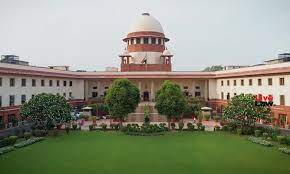(A) Penal Code, 1860, Section 301 read with Section 302, 307 – Murder – Inconsistencies in eye witness testimony – Non recovery of weapon of offence – Appreciation of evidence – Evidence tendered by the eyewitnesses suffer from serious lacunae – Thus, their evidence cannot be said to be credible – That apart, material witnesses have not been examined – On the whole, the evidence tendered on behalf of the prosecution cannot be said to be full proof so much so that non-recovery of the weapon of offence, non-obtaining of ballistic opinion and non-examination of ballistic expert would be immaterial – It cannot be said that the prosecution could prove the accusation against the appellant beyond all reasonable doubt – On the same set of evidence, the trial court gave the benefit of doubt to the other accused ‘L’ primarily on the ground that there was a grudge between the accused and PW-1 – Held that the appellant should be given the benefit of doubt as the prosecution could not prove his guilt beyond all reasonable doubt – This is more so when the co-accused is acquitted by the trial court on the same set of evidence – Conviction and sentence of the accused liable to be set aside – The judgment and order of the Additional Sessions Court as well as the judgment and order of the High Court liable to be set aside and quashed – Consequently, the appellant is directed to be released from jail forthwith, if not required in any other case. (Para 30, 31, 33 and 34)
(B) Ballistic report – Testimony of eye witness – Non recovery of weapon of offence – Appreciation of evidence – Held that by itself non-recovery of the weapon of crime would not be fatal to the prosecution case – When there is such non-recovery, there would be no question of linking the empty cartridges and pellets seized during investigation with the weapon allegedly used in the crime – Obtaining of ballistic report and examination of the ballistic expert is again not an inflexible rule – It is not that in each and every case where the death of the victim is due to gunshot injury that opinion of the ballistic expert should be obtained and the expert be examined – When there is direct eye witness account which is found to be credible, omission to obtain ballistic report and non-examination of ballistic expert may not be fatal to the prosecution case but if the evidence tendered including that of eyewitnesses do not inspire confidence or suffer from glaring inconsistencies coupled with omission to examine material witnesses, the omission to seek ballistic opinion and examination of the ballistic expert may be fatal to the prosecution case. (Para 29)
SUPREME COURT OF INDIA
2024 STPL(Web) 118 SC
[2024 INSC 128]
Ram Singh Vs. State Of U.P.
Criminal Appeal No. 206 of 2024-Decided on 21-2-2024
https://stpllaw.in/wp-content/uploads/2024/04/2024-STPLWeb-118-SC.pdf







